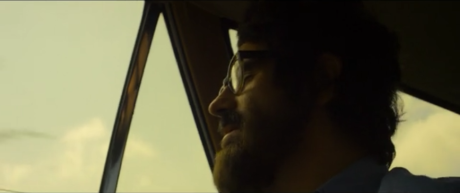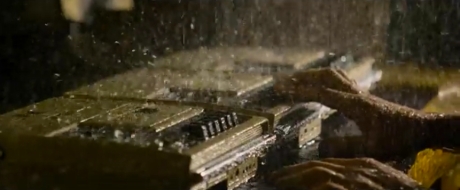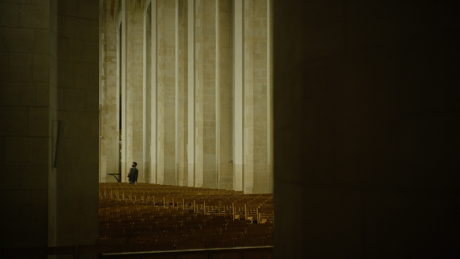

On the 1st of July 2016 Notes on Blindness, based on the audiocassette diaries of Prof John M. Hull will open in cinemas across the UK. Last year the directors of the film, Peter Middleton and James Spinney, kindly gave permission for their initial Emmy Award-winning short documentary (of the same name) to open the chalk: time sense and landscape, symposium in Winchester.
The symposium was to a very large extent inspired by the writing of John Hull and I was absolutely delighted when John agreed to open the day as our keynote speaker. I was subsequently devastated to learn of his death on the 28th July 2015. Peter and James continued to support the symposium and had hoped to attend the day in October, but were actually editing the feature length Notes on Blindness at that time. An obituary for John appeared in The Guardian.

I first came across John Hull’s writing in the book Touching the Rock (1990), in which he describes and reflects upon his journey into blindness. The writing maintains the honesty and intimacy of the audiocassette diaries from which it was transcribed, but it is much more than an autobiography of someone else’s experience. As Oliver Sacks writes in his forward to the book: ‘The observation is minute, and it is also profound. The incisiveness of Hull’s observation, the beauty of his language, make this book poetry’ […] Hull reveals a world in which every human experience […] is transformed’.
Notes on Blindness is a beautiful film, which maintains these immersive and poetic qualities. The use of sound in particular holds onto the intimacy of Hull’s writing: ‘Actors lip-synch to the voices of the family, embedding John’s original recordings’ in the temporality of cinematic flicker. The actors breathe in language, synchronising the gestures of utterance to the fluttering memories of sibilance, plosion and fricative.
This ventriloquial vagrancy resonates with Hull’s experience of sight-loss. ‘For the blind, people are not there unless they speak. People are in motion, they are temporal. They come and they go […] Disembodied voices, speaking out of nowhere, going into nowhere. For Hull this loss of place extends into his own sense of being there. He felt himself a memory, a ghost. ‘I want to touch my very lips as I am speaking’, for if other ‘people’s voices come from nowhere. Does my voice also come from nowhere?’
In the world of the blind voice offers only a fluttering of presence, an oscillation between being and absence. Referring to St Augustine, Hull equates this ephemerality with that of the soul which, ‘like a bird…bursts into a large building, flutters for a while… and then finds an escape and disappears.’

Notes on blindness flickers in cinemas across the UK from the 1st of July.